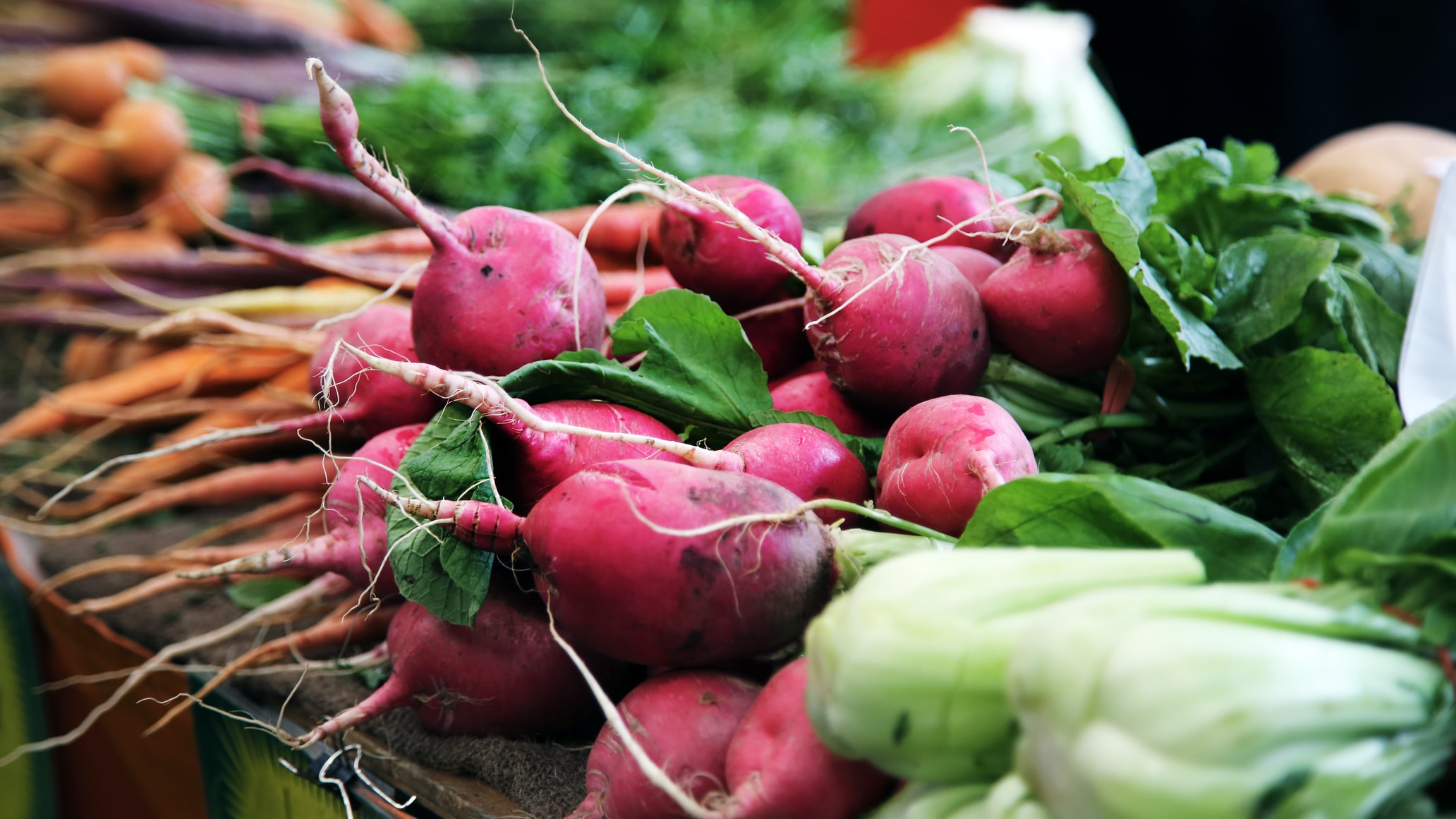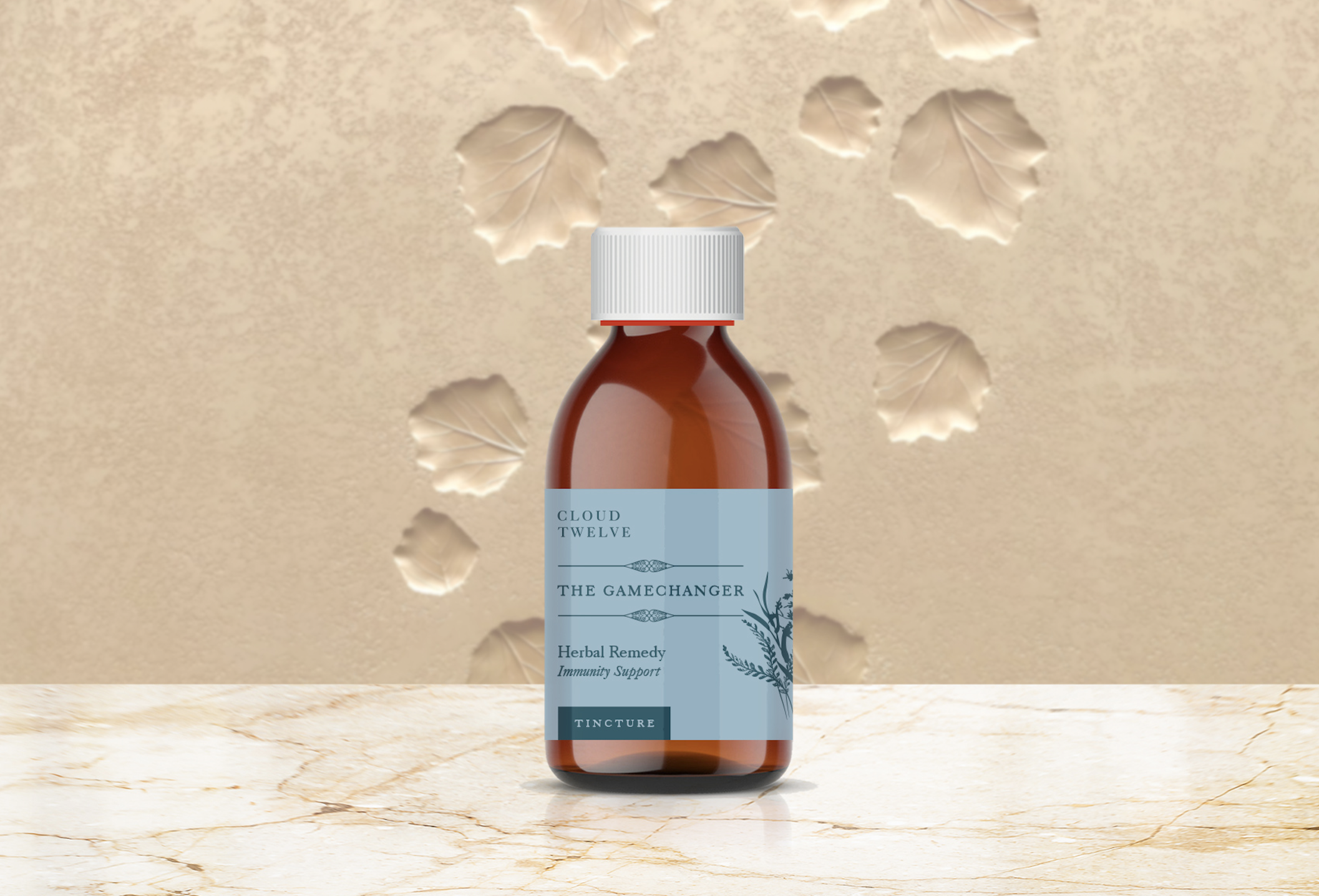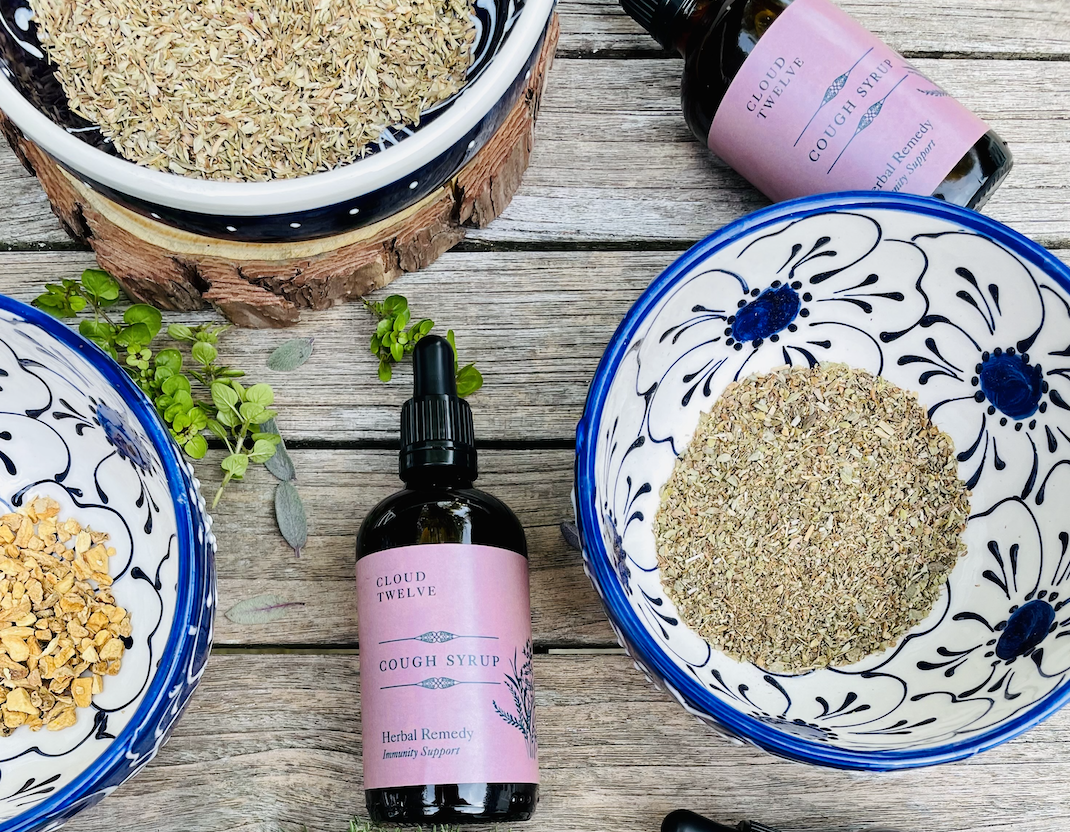As days get shorter and colder - warm blankets, cracking fires and hot drinks become particularly appealing. Yet, just because the weather is chilly, it doesn't mean you need to go into hibernation. You can be healthy and fit all winter long and not succumb to colds, flu, low moods or seasonal sluggishness with the help of diet, exercise, herbs and immune boosting wellness therapies.
1. Diet
As many fruits and vegetables are out of season in autumn and winter, exploring fermented and sprouted foods will provide you with the most nutrition. Most of your food, however, needs to be warm, cooked and easy to digest, as our body is sluggish and does not metabolise as effectively in the cold months of the year.
It is a perfect time for healthy comfort food, but if you are craving a salad, spice it up with ginger, garlic or cayenne pepper. In Ayurveda winter is often linked to kapha dosha characterised by cold, heavy, damp and stagnant qualities and hot spices are extremely useful for balancing these states. Mushrooms is another great ingredient to add to your meals. They contain high amounts of polysaccharides that are known for their ability to boost the immune system, fight inflammation and positively modulate gut flora. Eating cooked mushrooms, such as shiitake, maitake and others, at least twice a week, is an easy and powerful way to maintain and build resistance against pathogens.

Finally, don’t forget about root vegetables. They are packed with fiber, minerals, vitamins and antioxidants. Ask yourself at each meal whether vegetables make up 70% of your plate as it is the fibre from the vegetables that provides nutrition for the beneficial microbiota that fights pathogens and is responsible for serotonin production, very important nutrient for keeping our spirits high.
2. Ayurvedic perspective
In Ayurveda winter is often linked to kapha dosha characterised by cold, heavy, damp and stagnant qualities. That’s why doing a gentle detox during this time of the year can help remove some of the stagnation and reset our body to a more efficient state. Intermittent fasting is a really good idea, as well as limiting your meal to twice a day, especially during a party season. What else can we do to balance kapha:
- Warm up your body inside and out with the help of spices, warm cooked meals and an extra log on the fire.

- Follow a regular schedule, ideally awakening early and eating at regular times, avoiding naps during the day and general hibernation.
- As kapha dosha is closely associated with the immune and lymphatic systems, which manifests in excess mucus, water retention, cysts and slow digestion, it’s important to keep lymph moving with the help of tapping, exercise, contrast showers, massage and breathing techniques.
- Clear your space. Regularly give away and clear out things you don’t use to avoid clutter
- Seek stimulation. Kaphas tend to cling to the status quo and routines, and therefore they need stimulation of new sights, sounds and experiences.
3. Support your gut
Supporting the gut is always the starting point of immune boosting protocols. Beneficial microbes in the gut and other organs and tissues are our first line of defence, and we need to make sure we are eating diverse fiber-rich diet in order to feed them and crowd out pathogens. I am a big fan of 5R gut protocol which focuses on Removing bad bugs and toxins, Replacing digestive insufficiencies with the help of spices, bitter, enzymes and other supplements, Reinoculating gut flora with probiotics, Repairing gut lining and Rebalancing the lifestyle to reduce stress which is absolutely detrimental to healthy gut function.

4. Herbal protocols
Herbal protocols. There are many beneficial herbs that can support us at this time of the year. Firstly, the adaptogents, such as Siberian ginseng, astragalus, ashwagandha and Rhodiola, will work to boost energy and vitality and enhance resilience to stress and disease. In fact, adaptogens are very gentle and can be taken all year round, whenever your body requires extra support.
If you do catch a cold or flu, take a hot infusion of elderflower, peppermint and yarrow to reduce fever and clear catarrh. Ginger tea with rosehips, lemon and raspberry preserve is also excellent, but make sure you also chew the ginger and feel it burn your throat to make the most of its antimicrobial action. Other immune-enhancing herbs, like echinacea, licorice, reishi, cordyceps, elecampane, olive leaf and mullein can be taken simultaneously, in a tincture form.
The Gamechanger is one of our winter best-sellers. This tincture includes a blend of antimicrobial and antiviral herbs that are known to strengthen the immune system and help increase defences against pathogens. These herbs have been traditionally used to prevent and fight colds, flu and a wide range of respiratory infections. The beauty of immune boosting herbs is that unlike pharmaceutical drugs herbs can act on a broad spectrum of infections, because their mechanism of action targets activation of our body’s immune system that then decides how to attack bacteria, viruses or fungi.

5. Kitchen medicine
Aromatic inhalations or hot foot baths with eucalyptus, tea tree, rosemary or thyme will help clear catarrh and unblock nasal congestion. All aromatic herbs contain volatile oils, which have anti-viral and anti-microbial properties. Mustard compress is another great preparation to decongest the lungs. Mustard has potent rubefacient properties, which means it promotes blood circulation, helps open the airways and makes it easier to cough and release phlegm. The simplest recipe is to mix one tablespoon of dry mustard with equal parts flour and add water to create a paste. Spread the mixture thinly on a paper towel and apply another paper towel on top so the mustard is sandwiched in the middle. Apply to chest area and cover with a blanket to encourage sweating. Keep for 10-15 minutes until the skin turns red and you feel a mild burning sensation. With children watch the skin carefully to avoid blistering and never apply mustard directly to the skin.
Another magical herbal preparation that you can make in the comfort of your kitchen is a cough syrup. Herbs for coughs are ideally taken in soothing syrups that coat and ‘stick’ to the respiratory tract. Syrups are palatable and are particularly useful for dry cough due to their ‘moisturizing’ properties. I often use a combination of thyme, sage, oregano and ginger in my syrup preparations. Thyme and sage are great respiratory herbs with antimicrobial and decongestant properties. They are my go-to for wet cough, excess mucus, sore throat and chest infections. Oregano is an all-round immune booster, while ginger is an anti-septic warming circulatory stimulant which enhances immunity by warming the body and moving the lymph.

You can use many other aromatic herbs, as they all contain volatile oils which have antimicrobial and antiviral properties – eucalyptus, chamomile, rosemary, cloves, turmeric, lemon balm and mint.
Make an infusion of 50g of dried herbs - equal parts thyme, sage, oregano - (100g of fresh herbs) by soaking them in 600ml of boiling hot water for 20-30 minutes. Measure the strained liquid, add the same amount of sugar or any other sweetener (I used agave syrup due to its low glycemic index). Heat gently until the sugar is dissolved, simmer for 20 minutes, stirring until thickened. Keep in a cool dark place for up to 1 year, once opened keep in a fridge and use within 2 months. For extra preservation, you can add 5% of alcohol. (I used Ginger tincture)
Take as is or in hot liquid with lemon, it tastes lovely!
6. Exercise
Regular exercise encourages body’s production of endorphins and moves the lymph, which houses our immune cells and that help us fight infections. It also keeps our body warm, promoting better circulation and nutrient supply to organs and tissues. Take a brisk walk daily, go for a run, do some yoga, take up cycling or join a dance class.
7. Wellness therapies
Salt therapy, or Halotherapy involves breathing in air with tiny salt particles. It dates back to the mid-1800s when a physician in Poland noted that miners who worked in salt caves did not develop lung disease. Indeed, salt therapy is believed to aid in relieving respiratory ailments, such as asthma, allergies, bronchitis and other chest infections. It is a 100% natural therapy, which triggers anti-inflammatory, anti-microbial and anti-allergic responses in the body. A sterile brine solution is injected into the air to create a salty climate. Once inhaled, these salt particles absorb irritants, including allergens and toxins, from the respiratory system. This process also breaks down mucus, resulting in clearer airways. It is recommended to use salt cave once a week for 20 minutes for prevention of colds and flu. Such an easy and enjoyable way to boost your immunity in preparation for winter! See below our Himalayan Salt Room in The Spa at Cloud Twelve.

8. Infrared therapy
There is nothing that warms us up better in winter than infrared sauna. And more importantly, infrared sauna is a perfect way to detox during the party season. It is seven times more detoxifying that traditional sauna and gives you an instant energy boost, which is a sign of a happy liver! Cloud Twelve has an incredible Infrared Sauna available.

Stay well and healthy xx
Jenya Di Pierro
Herbal Medicine Practitioner, BA, MA, AMH, ANP
@JENYADIPIERRO

Tags: Health, Wellness, Tips, Herbs, Naturopathic Remedies | Author: Jenya Di Pierro, Herbalist & Naturopath










